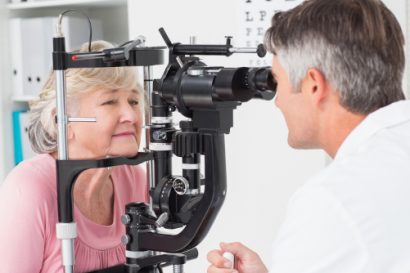It seems like many people confuse LASIK ( laser correction) and laser cataract surgery . This is understandable, because LASIK and cataract surgery share some similarities. But the truth is, they are two different procedures that work in totally different ways to correct vision. To eliminate some of the confusion, I thought I’d spend this post comparing LASIK and cataract surgery.

How Do They Differ?
LASIK reshapes the outer layer of the eye (cornea) to change the way the eye focuses light on the retina. In contrast, cataract surgery is a treatment applied to the lens of the eye. The natural lens of the eye becomes cloudy for cataract patients. During surgery, the cloudy lens is removed and replaced with an artificial lens (intraocular lens) called an IOL.
LASIK typically is performed on both eyes in the same session, while cataract surgery is typically performed on two separate days for the right and left eyes.
How Are They the Same?
Both procedures incorporate lasers to perform at least some of the surgical steps.
For example, all-laser LASIK, two lasers are used: a femtosecond laser to create the corneal flap and an excimer laser is used to change the corneal shape. For cataract surgery, a femtosecond laser is used to remove the natural lens from the eye.
Both procedures provide patients with very good vision after surgery, often 20/20 or better. Each procedure is relatively quick, requiring less than 15 minutes to perform, though LASIK is bit quicker coming in at less than five minutes per eye.
Can You Have LASIK AND Cataract Surgery on the Same Eye?
Since LASIK is performed on the cornea and cataract surgery is performed on the lens, it is possible to have both procedures performed on the same eye. LASIK would typically be performed at a younger age to correct for myopia, astigmatism or hyperopia. Cataract surgery typically would be performed a number of years later when the natural lens has become cloudy and should be replaced by the artificial lens.
What is a Cataract?
A cataract is a clouding of the lens in the eye that compromises vision and can cause eventual blindness. As cataracts worsen and vision continues to deteriorate, patients may experience problems with night vision, glare and sensitivity to light, blurred vision, double vision and more.
Debilitating as cataracts may be, they are not life threatening as a stand-alone ailment, which begs the question… why would cataract surgery improve your life expectancy?
The answer is rather obvious, albeit somewhat indirect. Cataracts cause diminished quality of life due to significant reductions in vision. If you aren’t able to see clearly, you are inhibited from doing a great many healthful things. Cataract patients find it increasingly difficult to drive a car (especially at night), or spend time exercising outdoors on bright, sunny days. Cataract patients becoming increasingly immobile as their condition worsens. This can have a drastic impact on overall health, and on mental attitude.
Similarly, cataract patients are more at risk of having an accident, such as fracturing a hip. A 2012 article published in the Journal of the American Medical Association (JAMA) found that cataract surgery patients had lower rates of hip fracture than people in the same age group with cataracts. This makes perfect sense given that the more clearly you can see, the less likely you are to have an accidental fall navigating steps or the like. Cataracts typically cause a significant reduction in the how patients see in low contrast situations, such climbing steps at night or maneuvering around items in the garage after hours.
According to the study, “people who receive cataract surgery are less likely to experience adverse disability trends than people who do not receive cataract surgery.” This means, patients who have had surgery remain more mobile over their lifetime.
The long and the short of it is that improved quality of life correlates with longer life. That’s not to say that if you have cataract surgery, you’re automatically going to enjoy a longer life. As with anything, you get out what you put in and eliminating vision loss with cataracts does not automatically resolve other age-related health issues. But, all things being equal, if you have cataract surgery, you’re giving yourself the opportunity to have much better vision and be more mobile (less accident prone) during your twilight years.
